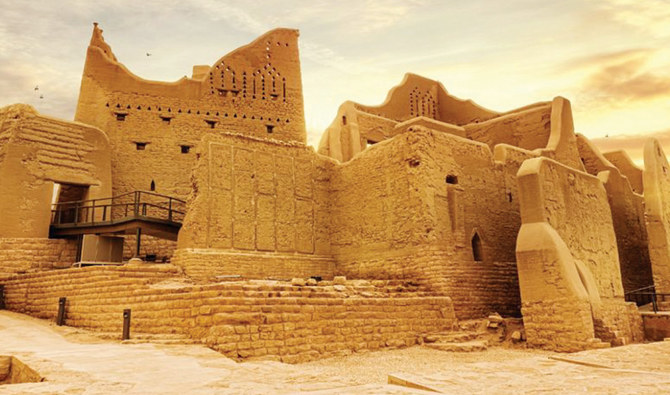DIRIYAH: With the establishment of the Diriyah Gate Development Authority (DGDA), the historical site of Diriyah will become one of the largest and most important international destinations.
The DGDA seeks to transform the site into a location to host activities and events aimed at exchanging historical and cultural knowledge through museums and venues spread throughout
Al-Turaif District.
The DGDA aims to celebrate the people of Diriyah by telling their stories and demonstrating their social, cultural and historical the roots, as the cradle of the first Saudi state and a symbol of the beauty of the Kingdom of Saudi Arabia and
its people.
Diriyah is home to Al-Turaif District, built in 1744 and known as one of the largest clay cities in the world. It was registered by UNESCO as a World Heritage Site in 2010 — one of five Saudi sites listed.
Not far from Al-Turaif District is the historic Al-Bujairi District, which was a center for spreading science and knowledge during the prosperity of Diriyah, as the capital of the first Saudi state.
Today it houses many commercial centers and cafes and is the perfect destination to experience Saudi cuisine.
One of the historical landmarks in Al-Turaif District is Salwa Palace, which is located in the northeastern part. It is the largest of its landmarks and spans over 10,000 square meters. It was founded by Imam Abdul Aziz bin Mohammed bin Saud in 1765, and is historically known as the home of the first royal family.
The palace houses the Diriyah Museum, which presents the history and development of the first Saudi state through works of art, drawings, models and documentaries.
BACKGROUND
At the northern end of old Diriyah, the town of Ghusaybah sits atop of a plateau surrounded by the Hanifa Valley on three sides.
Salwa Palace forms an integrated architectural system with its residential, administrative, cultural and religious units.
Al-Turaif District also includes the Imam Muhammad bin Saud Mosque, known as the Great Mosque or Al-Turaif Mosque. It is adjacent to Salwa Palace on the north side, and Imams used to lead Friday prayers there.
To make movement between the mosque and the palace easier, Imam Saud bin Abdul Aziz built a bridge to connect them on the upper floor. The mosque houses a religious school to teach religious sciences. It was formerly the largest mosque in the Arabian Peninsula and was built to symbolize the strength and unity of the Saudi state.
At the northern end of old Diriyah, the town of Ghusaybah sits atop of a plateau surrounded by the Hanifa Valley on three sides. It was settled by Mani’ Al-Muraydi, the oldest ancestor of the House of Saud, in the 15th century.
Ghusaybah is a well-established location, carefully chosen for the establishment of the new governorate, and its location played a major role in the protection of Hajj convoys and trade passing through its areas of influence in Al-Arid region.
Ghusaybah was the seat of an independent governorate before the founding of the first Saudi state. It provided protection for the northern gate of Diriyah during the campaign of Ibrahim Pasha in 1818.
Samhan is one of the historical areas south of Ghusaybeh on a triangle overlooking the valley when it meets another tributary, the villages of Omran. It directly overlooks the districts of Qusayrin, Mrayih, and Al-Turaif. This location was important during the reign of Imam Mohammed bin Saud and his son Samhan, being a well-fortified site during the siege of Diriyah. It was selected by Imam Abdullah to be his defense headquarters.
In the field of philanthropy, one may mention “Sabala Moudhi” which was founded by Imam Abdul Aziz bin Mohammed bin Saud, who made it a charitable endowment in the name of his mother, Moudhi bint Sultan bin Abi Wahtan, wife of Imam Mohammed bin Saud.
It is located east of the Salwa Palace on the southeast of Al-Turaif District. It is a two-story building and was established to provide free accommodation for visitors coming to the city of Diriyah.
















